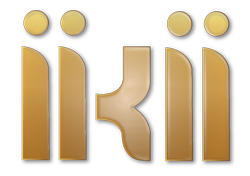Review
Smart Tourism in ASEAN: Leveraging Technology for Sustainable Development and Enhanced Visitor Experiences
More Detail
1 INTI International University2 Schneider Electric Singapore* Corresponding Author
International Journal of Social Sciences and Artistic Innovations, 4(3), September 2024, 0003
Published: 14 August 2024
OPEN ACCESS 299 Views 342 Downloads
ABSTRACT
Smart tourism, an innovative integration of technology into the tourism industry, is transforming the way travelers experience destinations across the ASEAN region. This paper explores how ASEAN countries are leveraging advanced technologies such as the Internet of Things (IoT), big data analytics, artificial intelligence (AI), and mobile applications to promote sustainable development and enhance visitor experiences. By adopting smart tourism strategies, ASEAN nations aim to address critical challenges including environmental conservation, efficient resource management, and the creation of personalized, seamless travel experiences. The implementation of smart tourism solutions enables real-time data collection and analysis, providing valuable insights for decision-makers and stakeholders. This facilitates improved infrastructure planning, targeted marketing, and the development of responsive services that cater to diverse tourist needs. Furthermore, the integration of smart technologies fosters greater collaboration among ASEAN member states, encouraging the sharing of best practices and innovative solutions. As a result, smart tourism not only enhances the overall satisfaction of visitors but also contributes to the sustainable growth and resilience of the tourism sector in the ASEAN region. This paper highlights key case studies and initiatives, demonstrating the potential and impact of smart tourism in driving economic development and promoting a more sustainable and inclusive tourism industry in ASEAN.
CITATION (APA)
Leong, W. Y., Leong, Y. Z., & Leong, W. S. (2024). Smart Tourism in ASEAN: Leveraging Technology for Sustainable Development and Enhanced Visitor Experiences. International Journal of Social Sciences and Artistic Innovations, 4(3), 0003.
REFERENCES
- ASEAN Secretariat (2015). ASEAN Tourism Strategic Plan 2016–2025. Available online: https://asean.org/wp-content/uploads/2012/05/ATSP-2016-2025.pdf (accessed on August 5, 2024)
- ASEAN Secretariat (2022). ASEAN Tourism Marketing Strategy 2021–2025. Available online: https://asean.org/wp-content/uploads/2022/01/ATMS-2021-2025.pdf (accessed on August 5, 2024)
- Boes, K., Buhalis, D., Inversini, A. (2016). Smart tourism destinations: Ecosystems for tourism destination competitiveness. International Journal of Tourism Cities, 2(2), 108–124.
- Buhalis, D., Amaranggana, A. (2015). Smart Tourism Destinations. In Information and Communication Technologies in Tourism 2015. New York, NY, USA: Springer, Cham. pp. 553–564.
- Choo, K.W., Zakaria, R., Adnan, A., Leong, W.Y. (2018). Various Techniques on Retrofitting for Earthquake Hazard Mitigation. International Journal of Engineering & Technology, 7, 167. https://doi.org/10.14419/ijet.v7i3.36.29101.
- Gretzel, U., Sigala, M., Xiang, Z., Koo, C. (2015). Smart tourism: Foundations and developments. Electronic Markets, 25(3), 179–188.
- Gössling, S., Hall, C. M., Scott, D. (2019). The decarbonisation imperative: Transforming the tourism industry to achieve Paris Agreement goals. Journal of Sustainable Tourism, 27(7), 933–950.
- Han, F.M., Leong, W.Y. (2012). Investigating Target Detection and Localization in Wireless Sensor Network. Procedia Engineering, 41, 75–81. https://doi.org/10.1016/j.proeng.2012.07.145.
- Huang, C. D., Goo, J., Nam, K., Yoo, C. W. (2017). Smart tourism technologies in travel planning: The role of exploration and exploitation. Information & Management, 54(6), 757–770.
- Kumar, R., Jain, V., Leong, W.Y., & Teyarachakul, S. (2023a). Convergence of IoT, Blockchain, and Computational Intelligence in Smart Cities. Boca Raton, FL, USA: CRC Press.
- Kumar, R., Kapil, A. K., Athavale, V., Leong,W.Y., & Touzene, A. (2023b). The catalyst for clean and green energy using blockchain technology. In Modeling for Sustainable Development: A Multidisciplinary Approach. New York, NY, USA: Nova Science Publishers, Inc. pp. 23–39
- Lee, D., Lee, S., Lee, H. (2018). The impact of mobile applications in tourism: An empirical study. Journal of Hospitality and Tourism Technology, 9(3), 363–377.
- Leong, W.Y. (2022). Human Machine Collaboration and Interaction for Smart Manufacturing: Automation, Robotics, Sensing, Artificial Intelligence, 5G, IoTs and Blockchain. London, UK: The Institution of Engineering and Technology.
- Leong W.Y. (2023a). Digital Technology for Asean Energy. Proceedings of the 2023 International Conference on Circuit Power and Computing Technologies (ICCPCT), August 10–11, 2023, Kollam, India. pp. 1480–1486. https://doi.org/10.1109/ICCPCT58313.2023.10244806.
- Leong, W.Y., Leong, Y.Z., & Leong, W.S. (2023b). Human-Machine Interaction in Biomedical Manufacturing. Proceedings of the 2023 IEEE 5th Eurasia Conference on IOT, Communication and Engineering (ECICE), 27–29 October, 2023, Yunlin, Taiwan, pp. 939–944, https://doi.org/10.1109/ECICE59523.2023.10383070.
- Leong, W.Y., Leong, Y.Z., & Leong, W.S. (2023c). Smart Manufacturing Technology for Environmental, Social, and Governance (ESG) Sustainability. Proceedings of the 2023 IEEE 5th Eurasia Conference on IOT, Communication and Engineering (ECICE). October 27–29, Yunlin, Taiwan, 1–6. https://doi.org/10.1109/ECICE59523.2023.10383150.
- Leong, W.Y., Heng, L.S., Leong, Y.Z. (2023d). Smart City initiatives in Malaysia and Southeast Asia. Proceedings of the 12th International Conference on Renewable Power Generation. October 14–15, Shanghai, China, 1143–1149.
- Leong, W.Y., Heng, L.S., Leong, Y.Z. (2023e). Malaysia renewable energy policy and its impact on regional countries. Proceedings of the 12th International Conference on Renewable Power Generation. October 14–15, Shanghai, China, 7–13, https://doi.org/10.1049/icp.2023.2114.
- Leong, W.Y., Kumar, R. (2023f). 5G Intelligent Transportation Systems for Smart Cities, Convergence of IoT, Blockchain, and Computational in Smart Cities. Boca Raton, FL, USA: CRC Press. pp.1–25.
- Leong, W.Y., Heng, L.S., Leong, Y.Z. (2024a) Malaysia’s Renewable Energy Policy and Impacts on ASEAN Countries, Advances in Science. Technology and Engineering Systems Journal, 9(2), 67–73.
- Leong, W.Y., Leong, Y.Z., Leong, W.S. (2024b). Integrating SDGs Education into a Design Thinking Module. Proceedings of the 2024 IEEE 7th Eurasian Conference on Educational Innovation. January 26–28, Bangkok, Thailand.
- Leong, W.Y., Leong, Y.Z., Leong, W.S. (2024c). Blockchain Technology in Next Generation Energy Management System. Proceedings of the 2024 7th International Conference on Green Technology and Sustainable Development (GTSD). July 25–26, Ho Chi Minh City, Vietnam.
- Leong, W.Y., Leong, Y.Z., Leong, W.S. (2024d). ESG Imperatives for Healthcare Sustainability. The 2024 IEEE 6th Eurasia Conference on Biomedical Engineering, Healthcare and Sustainability. June 14–16, Tainan, Taiwan.
- Li, Y., Hu, C., Huang, C., Duan, L. (2018). The concept of smart tourism in the context of tourism information services. Tourism Management, 58, 293–300.
- Liu, W., Lupito, E., Sum, Y.L., Tay, B., Leong, W.Y. (2009). Ultra wideband antenna for real time location system application. Proceedings of the 2009 35th Annual Conference of IEEE Industrial Electronics. November 3–5, Porto, Portugal.
- Luong, T.T., & Huynh, T.Q. (2020). Augmented reality (AR) and virtual reality (VR) in cultural heritage tourism: Opportunities and challenges in ASEAN countries. Journal of Heritage Tourism, 15(4), 327–344.
- Neuhofer, B., Buhalis, D., & Ladkin, A. (2015). Smart technologies for personalized experiences: A case study in the hospitality domain. Electronic Markets, 125(3), 243–254.
- Nguyen, T.N., & Ngo, T.Q. (2019a). A smart tourism development model for ASEAN cities. Journal of Information and Communication Technology, 18(2), 151–168.
- Nguyen, H.T., & Le, T.T. (2019b). Sustainable tourism development in ASEAN: Challenges and opportunities. Journal of Environmental Management and Tourism, 10(1), 90–108.
- Nham, P.T., & Thanh, B.T. (2018). Big data analytics: A key enabler for smart tourism development in ASEAN countries. Journal of Global Information Management, 26(3), 14–33.
- Pham, T.T.H., & Tran, T.V. (2017). Factors affecting online travel agency's trust and Asian tourists' intention to use: A case study of ASEAN countries. Journal of Theoretical and Applied Electronic Commerce Research, 12(3), 23–40.
- Sigala, M. (2015). The application and impact of gamification funware on trip planning and experiences: The case of TripAdvisor’s funware. Electronic Markets, 25(3), 189–209.
- Wang, D., Li, X. R., & Li, Y. (2016). China's “Smart tourism destination” initiative: A taste of the service-dominant logic. Journal of Destination Marketing & Management, 5(2), 70–79.
- Wang, X. F., Chong, P. H. J., Leong, W.Y. (2010). Performance comparison of CSMA/CD, CSMA/CA, CSMA/RI, CSMA/PRI and CSMA/PR with BEB. Proceedings of the 2010 5th IEEE Conference on Industrial Electronics and Applications. June 15–17, Taichung, Taiwan. pp. 1843–1848. https://doi.org10.1109/ICIEA.2010.5515401.


 The articles published in this journal are licensed under the CC-BY Creative Commons Attribution International License.
The articles published in this journal are licensed under the CC-BY Creative Commons Attribution International License.